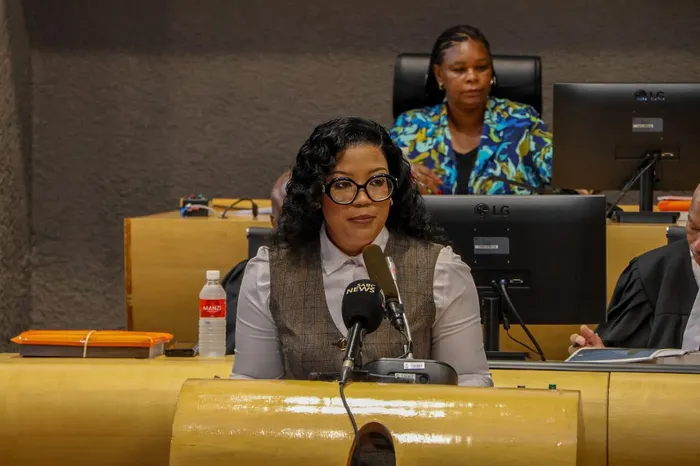Wage bill strains Education budget as 73% goes to salaries

The MEC for Finance, Economic Development and Tourism, Venus Blennies-Magage.
Image: Facebook
WITH the wage bill eating the largest chunk (73 percent) of the Education budget, little has been left for necessities such as school feeding schemes, learner transport, and school operational costs.
Delivering her provincial budget speech this week, the MEC for Finance, Economic Development and Tourism, Venus Blennies-Magage, stated that the compensation of employees would cost R13.4 billion in the 2025/26 financial year, which constituted 58 percent of the total provincial budget.
She indicated that the combined budgets of the Education and Health sectors accounted for 75 percent of the provincial budget, with a significant portion spent on salaries.
"These are high labour-intensive departments," she explained.
Blennies-Magage said that R392 million would be allocated to improving conditions of service, where a 5.5 percent salary increase had been negotiated nationally for public servants, effective from April 1.
“However, the national fiscus only provided funding for one percent, with departments expected to absorb the shortfall. This places a significant strain on labour-intensive departments such as Health and Education.”
She explained that the unfunded salary increases in 2024 had “plunged the Department of Education into a financial crisis”.
“This resulted in serious negative consequences for schooling systems in the province. It is our sincere hope that the national government will provide the necessary financial support to stabilise the departments of Health and Education, enabling them to deliver on their constitutional mandates without disruption.”
Blennies-Magage stated that there were 27,647 employees in the provincial workforce.
She added that 192 new revenue clerks and traffic officers would be recruited, while critical roles would be filled across various departments during the current fiscal year.
Early retirement incentives
Blennies-Magage added that R11 billion had been set aside by the Minister of Finance for early retirement initiatives over the next two years.
She indicated that about 4,284 employees (15 percent of the workforce) between the ages of 55 and 59 qualified for early retirement without pension penalties in the Northern Cape.
“An additional 1,270 employees (five percent) are over 60 years old and are eligible for normal retirement.”
Blennies-Magage added that the retained savings would enable departments to fill critical vacancies, particularly in front-line service delivery areas.
“To support a smooth and structured transition, Provincial Treasury will streamline the early retirement process, safeguarding critical and technical expertise.”
She stated that additional allocations would be used to support critical functions in both Health and Education.
“Despite our current challenges in Education, our learner-teacher ratios remain relatively low in the province, currently standing at one teacher for every 32 pupils.”
Blennies-Magage said that matric intervention programmes, the compensation of teachers, and the appointment of clinicians, doctors and health-care workers would be prioritised.
“The early childhood development subsidy will increase from R17 to R24 per day per child, and more children up to the age of four years will be accommodated at ECD centres,” she added.
Related Topics: